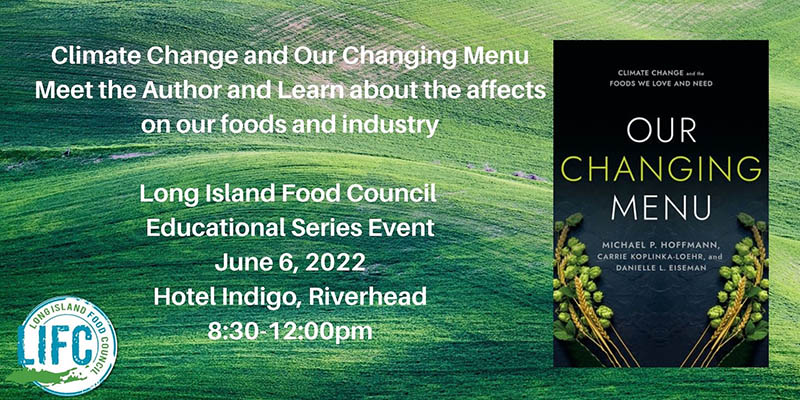*The following is an excerpt from Mazar’s February Ledger, please visit http://mazarsusa.com/ for more info*
Food and Beverage Trends For 2017… Will They Continue? – By Lou Biscotti
Heading into 2017, it’s clear that we can expect to see a continuation of certain trends in the food and beverage industry. The hottest sectors – such as healthy and nutritious foods – are still red hot, despite a reduction in the overall number of deals. According to results from Mazars USA’s annual Food & Beverage Industry Study, which surveys leaders in the industry across the U.S., M&A activity and multiples for healthy and nutritious food and beverage companies are expected to remain strong.
There are two main underlying factors driving M&A activity this year and into the next: continuing consumer demand for healthy and nutritious foods and beverages, and the entry of large-branded companies.
Consumer demand has shifted dramatically in recent years and continues to shift toward
healthy, nutritious, organic and ethnic foods. Further, consumers today are more willing
to buy private label brands, as private label foods can offer good quality and favorable
pricing. Interestingly, food prices have seen significant deflation, which could increase
margins for retailers and manufacturers.
Retailers are keenly aware of what consumers want. Technology will continue to be a critical factor with ordering online and scanning coupons, products and labels with mobile devices. For retailers, technologies coupled with private label products will support better margins and increased traffic. Population changes are creating new opportunities as well. Baby Boomers are gravitating more towards healthy and nutritious products and Millennials are label readers. Millennials are spending more on fresh fruits, organic and natural products, and less on soda and bread. Beyond generational changes, the Hispanic population is growing rapidly in the U.S. and ethnic foods catering to Hispanics are expected to bear rich rewards as will other ethnic brands. These trends have created a significantly different marketplace, and companies will need to respond strategically for survival and success.
The second driver for M&A activity is the response from the large food and beverage companies to the changing consumer demands. For a long time, emerging companies that were willing to take risks and follow consumer demand have taken market share from the big industry players. However, these giants are now reconsidering their strategies as sales of processed foods and old brands aren’t cutting it anymore. Consumer loyalty to brands has shifted and companies must create customer loyalty to new brands. Firms realize they must shift gears, buy small emerging brands, and increase their presence and sales with consumers.
Experts see the market taking on an hourglass shape, with premium, high-priced products at one end and low-priced products at the other. In the narrow middle is where companies are being squeezed and not a place they want to be, much like the center of the store for retailers. By buying smaller, emerging brands larger companies can relieve some of that stress in the middle. Considering the recent activity that we’ve seen, it’s likely that this is a trend that will continue and accelerate.
Food safety and labeling were important issues identified in the survey, especially for U.S.-based food and beverage companies facing changes under the new Food Safety Modernization Act (FSMA) and labeling laws. These laws will have a major impact on food companies as many expect that regulators will be increasingly focused on ensuring that companies meet these new standards. Nearly a quarter (21%) of the companies surveyed had already implemented compliance procedures for these labeling laws, which do not require compliance until 2018. Consumers are demanding transparency today and it’s expected that these laws will help them better understand what they’re eating or drinking, which will lead to more confidence in the safety of the supply chain. In order to thrive, companies will need to maintain focus on the changes required by these laws.
Process improvement activities were rated highly in the survey, with nearly 28% of companies surveyed focusing on such activities in 2016 and beyond. Most companies are focused on improving their supply chain and manufacturing or logistical processes. Improvements in these areas can shave points off cost of goods and allow companies to be more nimble in delivering products to customers.
Inherent to these process improvement activities are big data analysis and customer and product profitability analysis. Companies must ask themselves several questions including: “Who are the top customers;” “What profit is being made on those customers;” and “What are our top products and what profit is being made on each product?” Even while keeping an eye on trends, if a company doesn’t have systems to answer these questions, sales can be negatively affected and profits misplaced. Here the 80-20 rule applies and it always rings true. About 80% of a company’s profits come from 20% of its customers and 80% of a company’s profits come from 20% of its products. Process improvement activities drill into these areas, and along with big data analysis, can improve profitability and ultimately, customer satisfaction and business valuation.
The dynamic nature of the food and beverage industry – changing consumer trends, government regulations, emerging companies and new product and service offerings – will continue to challenge existing organizations to find new ways to remain competitive. While it’s important that food and beverage companies stay on top of and respond to the opportunities that these trends represent, it’s also important to make sure they remain true to their customers’ expectations and needs. It is meeting of those two factors that companies are most likely to find continued success.
Lou is a Partner at the Mazars Long Island Practice and member of the Long Island Food Council. He can be reached at 516.282.7201 or at Louis.Biscotti@MazarsUSA.com.







